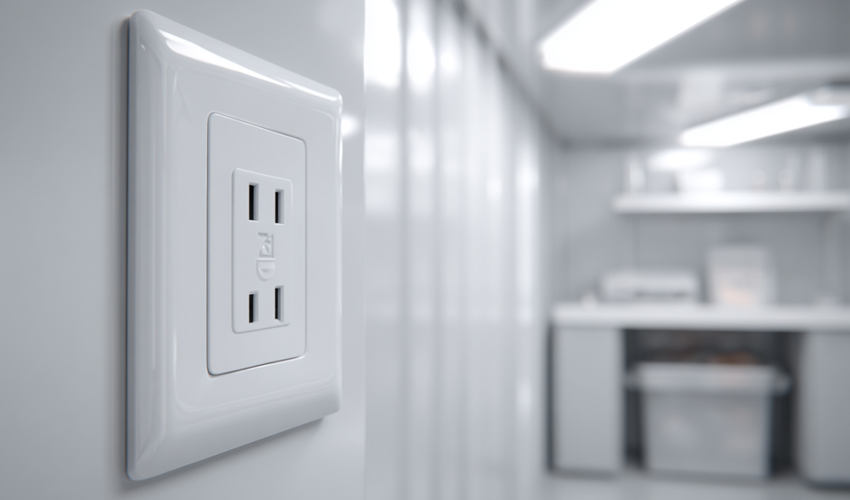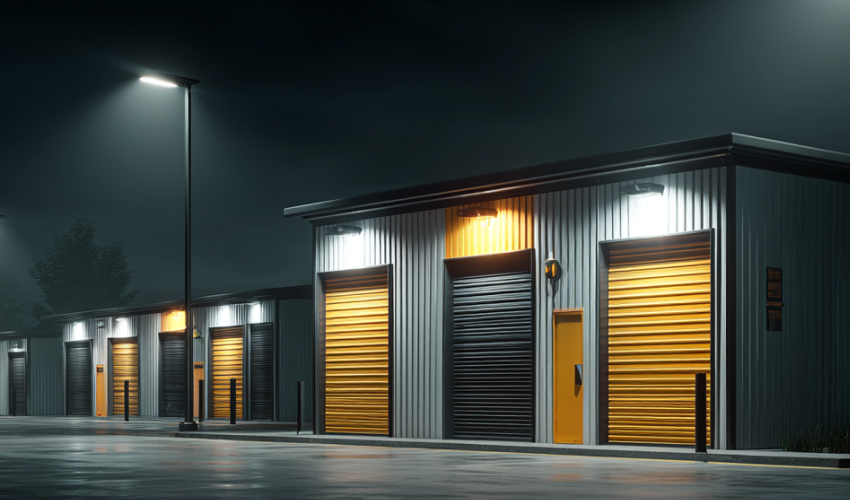Does Self Storage Have Electricity?

When you think of a storage unit, you probably imagine a simple, locked space with no extras. So does self storage have electricity? The answer depends on the facility. Most standard units do not have power because they are designed only for storing items, but there are exceptions. Some facilities offer units with power outlets, usually for specific uses, and these come with additional rules.
Why Most Units Do Not Have Electricity
The majority of storage units are kept simple on purpose. No wiring means fewer risks of fire, fewer maintenance issues and lower costs. It also helps with security, as unpowered spaces are less attractive to pests or anyone trying to use the unit as a workshop or living space.
Electricity brings responsibility. If a unit had uncontrolled power, there could be risks from overloaded sockets, unattended heaters or unsafe appliances. This is why standard units remain unpowered.
When Electricity Is Available
Some facilities provide units with power outlets, but these are typically offered as premium spaces. They may be used for business storage, hobby equipment, or items that need occasional charging. Access to electricity is usually monitored, and usage may be restricted to low-powered devices. You might need to request it in advance and agree to extra terms.
Facilities offering powered units often include enhanced fire safety systems and stricter checks. This makes sure the power is used safely without increasing risks for other customers.
Security and Powered Units
When electricity is provided, facilities usually apply more security measures. Units with power may have additional alarms or checks to prevent unauthorised use. If you choose a powered unit, make sure you understand the rules. For example, some sites do not allow heaters, cooking devices or high-energy tools.
Powered units may also cost more because of higher insurance requirements and safety inspections. If you need electricity, factor in these costs when comparing storage options.
For a deeper look at overall safety, you can read our guide on how often storage units get broken into, which explains how security measures protect all units, powered or not.
Why You Might Need Power
Not everyone needs electricity in their storage, but there are times when it is useful. Businesses storing tools might need to charge batteries. Classic car owners may use a trickle charger during long-term storage. Photographers might store lighting kits that occasionally need testing. In these cases, having a socket nearby saves time and effort.
If you only need light to see inside your unit, many facilities provide corridor lighting or motion-sensor lamps that switch on when you enter. This avoids the risks of personal wiring inside the unit itself.
What About Pests?
Another reason many providers avoid electricity is to reduce pest risks. Warm, powered spaces can attract insects and rodents, which is why facilities limit this feature. Even in standard units, pests are rare if you prepare properly. You can read our article on do storage units have bugs to learn how to keep your items protected.
Questions to Ask Before Choosing a Powered Unit
If you think you need a powered unit, ask the facility:
- Do you allow powered storage, and what are the limits?
- Are there extra costs or deposits?
- Are there restrictions on what devices I can plug in?
- How often do you inspect powered units?
- Do insurance policies cover powered storage?
Knowing the answers will help you decide if it is the right option for you.
For most people, a standard unpowered unit is more than enough. It is cheaper, safer, and has fewer rules to follow. If you genuinely need electricity, choose a facility that offers it safely and legally. Make sure you know the extra costs and responsibilities before you sign up.
